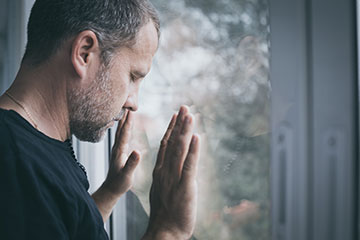
 The Society of Saint Vincent de Paul (SVP) has recorded an almost 20% increase in calls for help in the first quarter of 2021.
The Society of Saint Vincent de Paul (SVP) has recorded an almost 20% increase in calls for help in the first quarter of 2021.
Approximately 45,000 calls were received, the highest number during the first quarter in any year during the past decade.
SVP national president Rose McGowan said, “Apart from requests for help with food and energy bills, an additional difficulty for many families the past year has been the cost of ensuring that their children have the IT capabilities for dealing with home schooling.
“Requests for help for online learning costs. such as laptops/tablets, followed by broadband have been very common.”
Although home visitations have been curtailed because of Covid restrictions, support is still being provided by SVP.
Rose McGowan also said that the increase in the number of calls for support combined with the dramatic reduction in income resulting from the closure of its network of 234 shops and absence of church gate collections has put significant pressure on the SVP resources.
“The closure of our shops has not only put a financial strain on the Society but also on those we help by removing a source of inexpensive clothes and other goods from those who cannot afford to regularly shop from high-end retailers.
“Our pleas to Government to consider charity shops as an essential service and even open on a click and go basis has been completely ignored. This is very frustrating when some large retailers are allowed to sell some level of clothing.”
The figure for the first quarter of this year by SVP bear out the results of a Red C poll carried out in January on its behalf and published last month. The poll showed that a significant proportion of Irish society are facing a multitude of financial pressures due to the pandemic.
These included loss of income, increased household expenditure on basics, erosion of savings to meet ordinary living expenses and falling behind on bills. Almost a quarter are being forced to cut back on essentials like food, heating and electricity due to cost.
That research also showed that of those who were finding it quite difficult or very difficult to manage prior to Covid-19, including lone parents and those with disabilities, were spending more on essentials compared to those who were living comfortably.
A report on the results of the research entitled “Cutting Back and Falling Behind? An analysis of the financial impact of Covid-19” is available